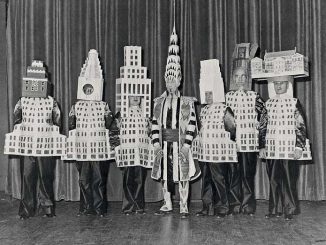
theory

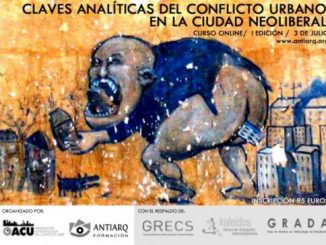
New online seminar on the anthropology of urban conflict
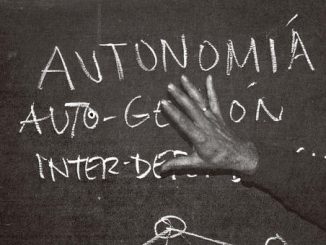
Auto-construction: for an autonomy of housing
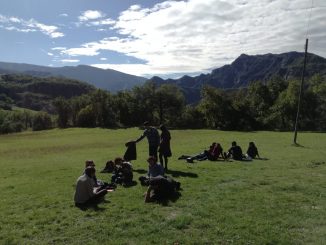
The second earthquake
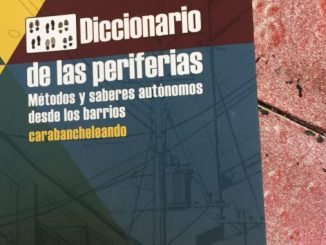
Knowledge is in the neighborhoods
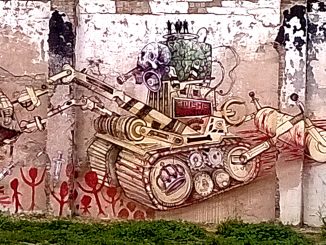
The city and the skin: public space and pudic space
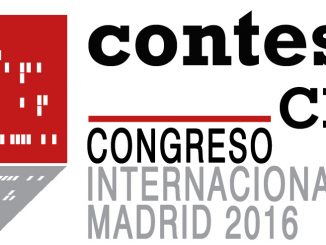
International Conference in Madrid, July 4-7, 2016
The international conference of the Contested Cities network, under the title From Contested Cities to Global Urban Justice, takes place in a time of growing global resistance and counter-strategies to these injustices, varying in form, scale and approach, and aims to develop counter-dialogues and perspectives, fighting against these injustices, in an attempt to think beyond neoliberalism. …

Where is the new urban frontier?
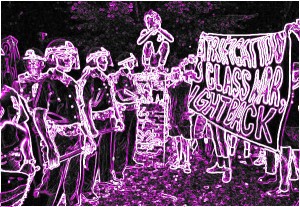 An international conference on Global capitalism and urban regeneration, as an homage to the great marxist geographer Neil Smith, that left us some years ago. Where do they hold it? At the MACBA, the Museum of contemporary art built in the Raval in the beginning of the 1990s. Like Columbia in Harlem, like La Sapienza in San Lorenzo, like the Centre Pompidou in Les Halles, and like many other cultural institution in neighborhoods “in regeneration”, the MACBA represented the beginning of the new urban colonization in the heart of Barcelona. As to say: when space says more than words, when the container quarrels with the contents. But at the same time, calling for the need to transcend the pain and remember the history at the same time. As Miquel Martí i Pol says: vam girar full temps ha, i alguns s’entesten / en llegir encara la mateixa plana (1980) [we turned the page some time ago, and there’s people who keep reading the same old page].
An international conference on Global capitalism and urban regeneration, as an homage to the great marxist geographer Neil Smith, that left us some years ago. Where do they hold it? At the MACBA, the Museum of contemporary art built in the Raval in the beginning of the 1990s. Like Columbia in Harlem, like La Sapienza in San Lorenzo, like the Centre Pompidou in Les Halles, and like many other cultural institution in neighborhoods “in regeneration”, the MACBA represented the beginning of the new urban colonization in the heart of Barcelona. As to say: when space says more than words, when the container quarrels with the contents. But at the same time, calling for the need to transcend the pain and remember the history at the same time. As Miquel Martí i Pol says: vam girar full temps ha, i alguns s’entesten / en llegir encara la mateixa plana (1980) [we turned the page some time ago, and there’s people who keep reading the same old page].
- You can receive news of the Col·loqui via twitter @espaiscritics and on the web http://espaiscritics.org

On with more dichotomies!
A brief note on a recent debate within the field of radical geography, which opposed Simon Springer, anarchist, and David Harvey, marxist. Each one defends his own position: Simon maintains that radical geography must be anarchist; David answers it’s not true, that it should be (or can be) marxist; Simon replies that Harvey didn’t get the point. The debate is interesting, up to a point, and shows how there are mortgages of the past for which not even the PAH will get forgiveness. Anyway, it highlights that critical geography is in an interesting moment, and that some debates that were important are reproducing themselves in the studies of space. We hope that the shifting grounds of the present will help to make possible what nobody managed to do in the past.
 Taking the occasion, we point out that the Seventh Congress in Critical Geography will be held in Ramallah, Palestine, from July 25th to 30th (2015), under the title of “Precarious radicalism in shifting grounds: towards a politics of possibility”.
Taking the occasion, we point out that the Seventh Congress in Critical Geography will be held in Ramallah, Palestine, from July 25th to 30th (2015), under the title of “Precarious radicalism in shifting grounds: towards a politics of possibility”.
- Simon Springer “Why a radical geography must be anarchist”, Dialogues in Human Geography, 2014, 4:249-270. (here for members, or on academia)
- David Harvey “Listen Anarchist”, 2015 (on his blog)
- Simon Springer “The limits to Marx: David Harvey and the condition of postfraternity” (on academia)
- Katherine Gibson “Thinking around what a radical geography ‘must be'”, forthcoming in Dialogues in Human Geography (on communityeconomies)
- Webpage of Ramallah’s International Congress on Critical Geography (ICCG)!

How to put an end to gentrification

Second International Conference on Anthropology and Urban Conflict
After the success of the First International Conference on Anthropology and Urban Conflict in Barcelona in november 2012, the second conference is being hold now in Rio de Janeiro, and organized together by Barcelona-based OACU and Rio de Janeiro’s Laboratorio de Etnografia Metropolitana. As posted on the Conference’s webpage, “Just as the catalan experience of 1992 Olympic Games was frequently pointed as the source of inspiration for the current context in Rio, the academic production of brazilian and foreign researchers is allowing us to challenge the very construction of the “Barcelona model”, by showing its perverse social impacts which are the results of the processes of the internationalization and mercantilization of cities…”.
- II Jornadas Internacionais de Antropologia do Conflito Urbano, from August 11th to 13th, Rio de Janeiro :: program :: talk on the impacto of the Olympics in Bcn and Río [article] [video]
- Dossier “Antropologia del Conflicto Urbano” in Quaderns-e del ICA n.19(1)2014.
- Something from Brazil: Short computer animation movie about How to prepare the World Cup :: Documentary Every Map Holds A Discourse, by Francine Albernaz and Thaís Inácio, about autonomous cartography in the favelas :: Observatório de Favelas webpage :: and the article by Marcelo Baumann Burgos et al. “O efeito UPP na percepcão des moradores das favelas” (2011)

The control over space, and the spaces of control: XIII Conference of Geocrìtica
From may 5th to 10th, 2014, the International conference “El control del espacio y los espacios de control”, will be held in the University of Barcelona, organized by the review Geocrítica; with the linked reviews ScriptaNova and Biblio3w, this is one of the most important and interesting publication on urban issues in the whole spanish-speaking area. The conference is public and admission free of charge; we suggest these sessions, in which some members of our OACU group will be involved: may 6th, Ocupación del espacio y control de los individuos at 9am, Segregación social y urbana a at 6.30pm; may 9th, Organización económica, poder y control at 9am, Cambios en las formas de control at 4pm.
- Here is the programme of the conference, with the list of papers and tables; for more information, visit the webpage.
- Here are the Papers of the conference, and the num. 493 of Scripta Nova with all the selected interventions!

Towards a glossary of new urban rhetorics
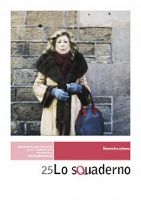 The last number of the review "Lo Squaderno" analyses some of the keywords in the new urban rhetorics: an articulation of the neoliberal newspeak from which Loïc Wacquant and Pierre Bourdieu warned us more than 10 years ago. Expressions like "vibrant city", "common goods", "mixité", "integration", "creativity", and obviously "citizen participation" are recurring terms in the lexicon of urban policies, serving as excuses for conducts contradictory with the original sense of the words that compose them (like we stressed in our work A Barcelona la participación canta). A series of academical and non-academical scholars discuss these rhetorical constructions bringing examples from Naples, Boston, Istanbul, Amsterdam, Vancouver, and, of course, Barcelona. The issue is illustrated with Rosario Kuri's reportage Barcelona bordes irregulares we linked in a previous post. Download Lo Squaderno n.25 here (italian - english).
The last number of the review "Lo Squaderno" analyses some of the keywords in the new urban rhetorics: an articulation of the neoliberal newspeak from which Loïc Wacquant and Pierre Bourdieu warned us more than 10 years ago. Expressions like "vibrant city", "common goods", "mixité", "integration", "creativity", and obviously "citizen participation" are recurring terms in the lexicon of urban policies, serving as excuses for conducts contradictory with the original sense of the words that compose them (like we stressed in our work A Barcelona la participación canta). A series of academical and non-academical scholars discuss these rhetorical constructions bringing examples from Naples, Boston, Istanbul, Amsterdam, Vancouver, and, of course, Barcelona. The issue is illustrated with Rosario Kuri's reportage Barcelona bordes irregulares we linked in a previous post. Download Lo Squaderno n.25 here (italian - english). 
Suburbs according to Reclús
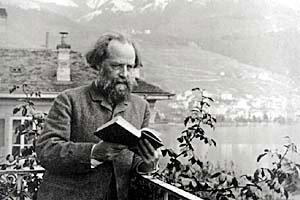 The suburbs, according to the anarchist geographer Elisée Reclús (1830-1905), are not places of exclusion in which are confined those who can't afford to live in the city center. On the contrary, the margins, the periphery, were for him the ideal spaces to develop ways of life closer to nature, without losing the relationship with the hustle and bustle of the city (Reclús had been involved in Paris Commune), but out of the insane density of the metropolis. Reclús lived the last half of his adult life in the suburbs, claiming the last urban fringes as places that permit to break the gap between nature and the city; a central problem for the geographers and urbanists of his time, especially the ecologists and anarchists (Patrick Geddes, Lewis Mumford and, in Catalonia, Cebrià de Montoliu).
The suburbs, according to the anarchist geographer Elisée Reclús (1830-1905), are not places of exclusion in which are confined those who can't afford to live in the city center. On the contrary, the margins, the periphery, were for him the ideal spaces to develop ways of life closer to nature, without losing the relationship with the hustle and bustle of the city (Reclús had been involved in Paris Commune), but out of the insane density of the metropolis. Reclús lived the last half of his adult life in the suburbs, claiming the last urban fringes as places that permit to break the gap between nature and the city; a central problem for the geographers and urbanists of his time, especially the ecologists and anarchists (Patrick Geddes, Lewis Mumford and, in Catalonia, Cebrià de Montoliu).